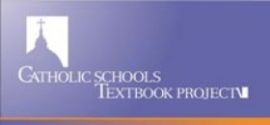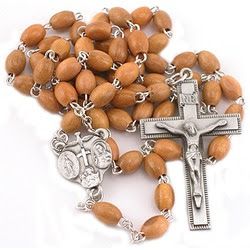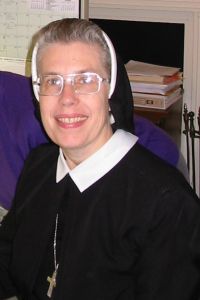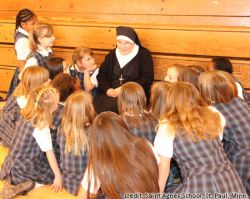What Is Common Core?
Common Core State Standards (CCSS) are a set of national K-12 educational standards that currently focus on English and Math. These standards were adopted in Pennsylvania on March 14, 2013 by the PA State Board of Education (with Governor Corbett’s approval). Sadly, we have heard that over 100 Diocese across the country have also approved these standards, detracting from the impact that Catholic schools have in the world today. States were hooked into the Common Core movement with Race-to-the-Top grants they applied for in 2009-2010, and with that application, they were allowed to apply for “No Child Left Behind (NCLB) Waivers” if they adopted the CCSS. Subsequently, each state was allowed to add 15% to these federal standards under the Common Core 15% Rule only after they adopted these CCSS standards verbatim.
Why have so many Dioceses approved Common Core when they weren't required to?
“Catholic schools need to pay attention to the fact that the common core standards and assessments are here and it is important to get on board,” according to Lorraine A. Ozar, Ph.D, founding Director of the Loyola University Center for Catholic School Effectiveness.
Many Diocese have indicated that they are being proactive in adopting Common Core because of significant changes that are being made to textbooks and assessment testing in order to align them with Common Core.
While this decision may seem practical for Catholic schools, it minimizes its duty to develop the whole child, in a complete Christian formation – in mind, body and spirit. We simply cannot accept this fundamental change in our schools for the sole purpose of a unified pedagogy.
Why should we be concerned about Common Core in our children's education?
Common Core standards are untested and include experimental approaches to teaching both English and Math. They were adopted in 46 states before they were ever written! In Kentucky, the first state to adopt these standards, students’ reading proficiency dropped from 70% in 2010 to 46.8% in 2012. English standards require significant focus on informational texts, versus classic literature. It also emphasizes less reading assignments and more re-reading; less vocabulary words, and more studying of the “webs” around the words most frequently used (EngageNY.org). Read this excellent analysis of the negative impact of the ELA standards on students.
Experts have argued that the Math standards will set our children back by as much as two years behind their peers in high achieving countries. Kentucky tests showed Math proficiency rates of students fall from 73% in 2010-11 to only 40.4% in 2011-12. Read this about the math standards and their inadequacies.
How will Catholic schools incorporate Common Core into a Catholic school curriculum?
What is Common Core?
Common Core State Standards (CCSS) are a set of national K-12 educational standards that currently focus on English and Math. These standards were adopted in Pennsylvania on March 14, 2013 by the PA State Board of Education (with Governor Corbett’s approval). Sadly, we have heard that over 100 Diocese across the country have also approved these standards, detracting from the impact that Catholic schools have in the world today. States were hooked into the Common Core movement with Race-to-the-Top grants they applied for in 2009-2010, and with that application, they were allowed to apply for “No Child Left Behind (NCLB) Waivers” if they adopted the CCSS. Subsequently, each state was allowed to add 15% to these federal standards under the Common Core 15% Rule only after they adopted these CCSS standards verbatim.
Why have so many Dioceses approved Common Core
when they weren’t required to?
“Catholic schools need to pay attention to the fact that the common core standards and assessments are here and it is important to get on board,” according to Lorraine A. Ozar, Ph.D, founding Director of the Loyola University Center for Catholic School Effectiveness.
Many Diocese have indicated that they are being proactive in adopting Common Core because of significant changes that are being made to textbooks and assessment testing in order to align them with Common Core.
While this decision may seem practical for Catholic schools, it minimizes its duty to develop the whole child, in a complete Christian formation – in mind, body and spirit. We simply cannot accept this fundamental change in our schools for the sole purpose of a unified pedagogy.
Why should we be concerned about
Common Core in our children’s education?
Common Core standards are untested and include experimental approaches to teaching both English and Math. They were adopted in 46 states before they were ever written! In Kentucky, the first state to adopt these standards, students’ reading proficiency dropped from 70% in 2010 to 46.8% in 2012. English standards require significant focus on informational texts, versus classic literature. It also emphasizes less reading assignments and more re-reading; less vocabulary words, and more studying of the “webs” around the words most frequently used (EngageNY.org). Read this excellent analysis of the negative impact of the ELA standards on students.
Experts have argued that the Math standards will set our children back by as much as two years behind their peers in high achieving countries. Kentucky tests showed Math proficiency rates of students fall from 73% in 2010-11 to only 40.4% in 2011-12. Read this about the math standards and their inadequacies.
How will Catholic schools incorporate Common Core
into a Catholic school curriculum?
Dr. Ozar and her team of “catechist” experts have created the Common Core Catholic Identity Initiative (CCCII). This initiative is aggressively marketing its resources (“Exemplar Templates”) to Catholic educators so that they may easily incorporate Catholic Identity into Common Core standards.
However, we know that through CCCII’s ORIGINAL website, the curriculum being promoted included controversial books that overtly advance non-traditional marriage, including same-sex marriage- such as Robert Skutch’s Who’s In a Family, which appeared on the 1st grade reading list. SOME of these materials were scrubbed from the website, after it was taken offline for some time. Their new website is here and does not show these controversial materials. We have them on Resources pagethough.
Through CCCII and Common Core, and as evidenced in the Original CCCII Exemplar Templates, they are promoting a distorted form of Social Justice that exploits authentic Catholic teaching to advance an extreme left political agenda. There are many links to Social activism websites and book lists, and liberal themes layered throughout. These types of “resources” do not allow the school and its educators to fulfull their role and duty in guiding its students to discover the Truth and their highest potential as a whole person.
Here is another way that CCSS is being incorporated in to Catholic schools… As part of their Unit Guidelines, pertaining to how to Infuse Catholic Identity we see this:
“Human Rights (rights of children)
Example:
The Catholic tradition teaches that human dignity can be protected and a healthy community can be achieved only if human rights are protected and responsibilities are met. Therefore, every person has a fundamental right to life and a right to those things required for human decency. Corresponding to these rights are duties and responsibilities‐‐to one another, to our families, and to the larger society. (USCCB: Seven Themes of Catholic Social Teaching). How does affirmation or violation of the human rights of children effect character development in: Go Ask Alice; Daddy Was a Numbers Runner; I Am the Cheese? “
Take a look at what these books represent (from Amazon) – Do these exhibit what PARENTS want from their Catholic schools and educators???:
GO ASK ALICE:
http://www.amazon.com/Go-Ask-Alice-Anonymous/dp/1416914633
The torture and hell of adolescence has rarely been captured as clearly as it is in this classic diary by an anonymous, addicted teen. Lonely, awkward, and under extreme pressure from her “perfect” parents, “Anonymous” swings madly between optimism and despair. When one of her new friends spikes her drink with LSD, this diarist begins a frightening journey into darkness. The drugs take the edge off her loneliness and self-hate, but they also turn her life into a nightmare of exalting highs and excruciating lows. Although there is still some question as to whether this diary is real or fictional, there is no question that it has made a profound impact on millions of readers during the more than 25 years it has been in print. Despite a few dated references to hippies and some expired slang, Go Ask Alice still offers a jolting chronicle of a teenager’s life spinning out of control.
I AM THE CHEESE:
Imagine discovering that your whole life has been a fiction, your identity altered, and a new family history created. Suddenly nothing is as it once seemed; you can trust no one, maybe not even yourself. It is exactly this revelation that turns 14-year-old Adam Farmer’s life upside down. As he tries to ascertain who he really is, Adam encounters a past, present, and future too horrible to contemplate. Suspense builds as the fragments of the story are assembled–a missing father, government corruption, espionage–until the shocking conclusion shatters the fragile mosaic. Young adult readers will easily relate to the shy and confused Adam, whose desperate searching for self resembles a disturbingly exaggerated version of the identity crisis common to the teenage years.
DADDY WAS A NUMBER RUNNER:
Childhood for Francie is having household chores like attaching the jumper to get free electricity and facing the disdain of Mrs. Burnett when she buys groceries from her on credit. It’s avoiding the groping hands of the butcher, the baker and the fat little white man who sits next to her in the theater, or maybe not avoiding them for the extra meat, rolls, or dime they might offer. It means reading “smutty” comic books and walking down 118th street where the prostitutes work, but not knowing what is happening when her period starts.
Is this just a misunderstanding?
No. This material is irreconcilable with the Catholic Church’s teachings. CCCII is fully supported by the National Catholic Educational Association (NCEA) and promoted by them on their website. Even though they have scrubbed some of the materials, we question why it was there to begin with? Who made the decisions to put them in there? Was ANYONE reviewing them? Who was protecting our children from this?
In a statement made by the NCEA, it states “the Common Core State Standards are not a curriculum. A curriculum includes what is taught, when it is taught, how it is taught and what materials to use. None of these items are included in the Common Core State Standards.” However, through the CCCII Exemplar Units, it is doing just that.
VATICAN DOCUMENTS – CATHOLIC EDUCATION
Click here:
Gravissimum educationis
www.vatican.va/archive/hist_councils/ii_vatican_council/documents/vat-ii_decl_19651028_gravissimum-educationis_en.html
Click here:
The Catholic School, 1977, The Sacred Congregation for Catholic Education
www.vatican.va/roman_curia/congregations/ccatheduc/documents/rc_con_ccatheduc_doc_19770319_catholic-school_en.html
Click here:
The Catholic School on the Threshold of the Third Millennium, 1997
www.vatican.va/roman_curia/congregations/ccatheduc/documents/rc_con_ccatheduc_doc_27041998_school2000_en.html

– forward this on to your Catholic school leaders!
Check out NAPCIS –
National Association of Private Catholic and Independent Schools


Visit the CATHOLIC SCHOOLS TEXTBOOK PROJECT – a wonderful alternative to generic social studies in many Catholic schools. These books are rich in authentic U.S. and World History.
It is the first history textbook series for Catholic schools in 40 years!

St. Thomas More, Martyr – Pray for us.
Studied at London and Oxford. Page for the Archbishop of Canterbury. Lawyer. Twice married, father of 1 son and 3 daughters, and devoted family man. Writer. Friend of King Henry VIII. Lord Chancellor of England, king. Opposed the king on the matter of royal divorce, and refused to swear the Oath of Supremacy declaring the king the head of the Church in England. Resigned and was imprisoned in the Tower of London. Martyred by beheading for his refusal to bend his religious beliefs to the king. Patron of Lawyers, adopted children, politicians. (died 1535)


Blessed Mother Teresa of Calcutta
“If you judge people, you have no
time to love them.”
“I know God won’t give me
anything I can’t handle. I just
wish he didn’t trust me so much.”
“Whatever you do, work heartily, as
for the Lord and not for men,”
Colossians 3:23

ADULT FORMATION OF FAITH
Catholic Distance University
www.cdu.edu
120 East Colonial Highway;
Hamilton, Virginia 20158
540-338-2700
Catholic Distance University,
institute in the United States to
award Catechetical Diploma and
teach the Faith to adults using
correspondence courses exclusively.

Presented courtesy of Pittsburgh Catholics Against Common Core
†JMJ†

